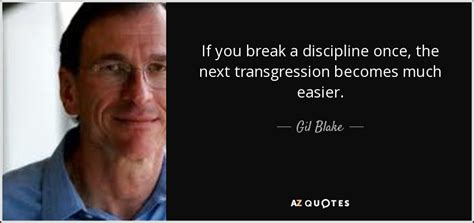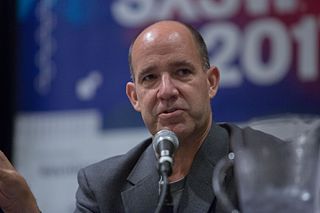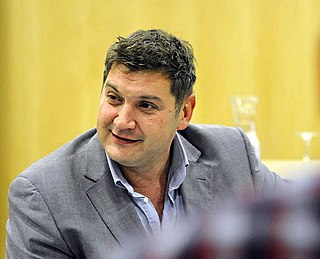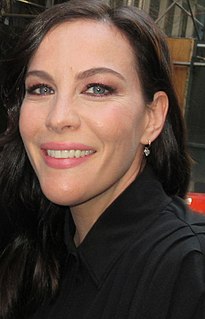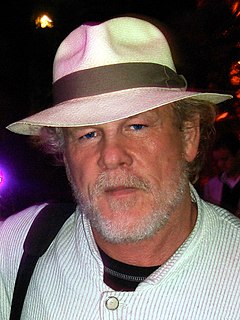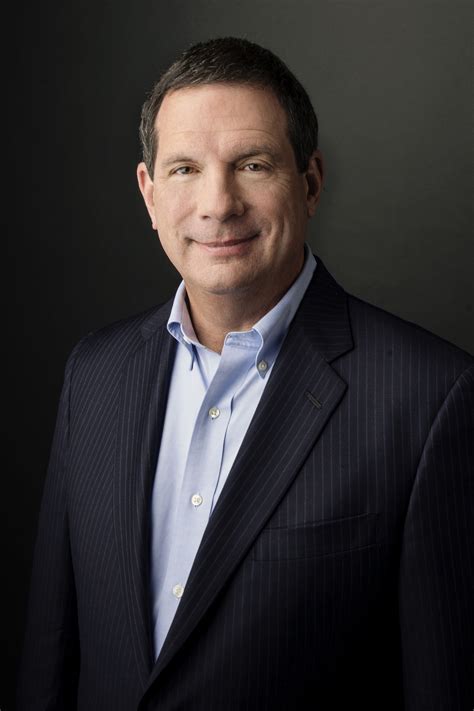Top 1200 Change And Growth Quotes & Sayings - Page 11
Explore popular Change And Growth quotes.
Last updated on December 19, 2024.
In pursuing personal growth, there are issues where we can advance just so far by ourselves. At some point, our continued progress and improvement can only come about through relationships with others. Romantic love is an intense and intimate exposure to another person; if we can be who we want to be, even in that context, then our spiritual growth is exponentially expanded.
Anytime we think the problem is 'out there,' that thought is the problem. We empower what's out there to control us. The change paradigm is 'outside-in' - what's out there has to change before we can change. The proactive approach is to change from the 'inside-out': to be different, and by being different, to effect positive change in what's out there - I can be more resourceful, I can be more diligent, I can be more creative, I can be more cooperative.
Many change initiatives are poorly thought out, and rolled out prematurely. Others are genuinely good ideas but the proponents underestimate the amount of time needed to make the change. And, I agree, true change usually requires people giving something up and so resistance is pretty well guaranteed for any meaningful change.
The single biggest stimulus to the economy are the unemployment benefits we're paying. These people go out and they spend the money. They go out and they have to get by to everything from paying their mortgage or buying food or just getting by. It has a significant impact on economic growth and the continuation of economic growth.
My advice would be, as you consider fiscal policies, to keep in mind and look carefully at the impact those policies are likely to have on the economy's productive capacity, on productivity growth, and to the maximum extent possible, choose policies that would improve that long-run growth and productivity outlook.
Talent has the four seasons: spring, that is to say, the sowing of the seeds; summer, growth; autumn, the harvest; winter, intellectual death. But there is now and then a genius who has no winter, and, no matter how many years he may live, on the blossom of his thought no snow falls. Genius has the climate of perpetual growth.
Yet friendship, I believe, is essential to intellectuals. It is probably the growth hormone the mind requires as it begins its activity of producing and exchanging ideas. You can date the evolving life of a mind, like the age of a tree, by the rings of friendship formed by the expanding central trunk. In the course of my history, not love or marriage so much as friendship has promoted growth.
The economy has settled into a sustainable, self-reinforcing growth path, .. All major categories of the economy have contributed to economic growth. Now that businesses have begun to add to payrolls, the current expansion is self-reinforcing. Only external shocks, such as terrorist attacks or a surge in oil prices, could derail the recovery.
To be equitable, economic growth has to be sustainable. To be sustainable, economic growth has in turn to be all-inclusive. All-inclusive is no longer the greatest good of the greatest number. It is actually 'Sarvodaya' or the 'rise of all'. This Mahatma Gandhi saw as essential to Satyagraha itself.
It turns out that advancing equal opportunity and economic empowerment is both morally right and good economics. Why? Because discrimination, poverty and ignorance restrict growth. We know that investments in education, infrastructure and scientific and technological research increase growth. They increase good jobs, and they create new wealth for all of us.
As the opportunity grows for unlimited growth and progress, the chances of failure increase. There is no such thing as a program that will provide security and growth and progress with no risk . . . even within the church. As freedom for unrestricted development is enhanced, the possibilities for failure are also increased. The risk factor is great.
It is so easy to close down to risk, to protect ourselves against change and growth. But no baby bird emerges without first destroying the perfect egg sheltering it. We must risk being raw and fresh and awkward. For without such openness, life will not penetrate us anew. Unless we are open, we will not be filled.
I would be remiss, as a scientist who studied this, if I didn't mention the following two things: The first is that, most importantly, we need to do, as a society, in this country and globally, whatever we can to reduce population"....."Our whole economic system is based on growth, and growth of our population, and this economic madness has to end.
It's a critical fallacy of our times ... that a writer should 'grow,' 'change,' or 'develop.' This fallacy causes us to expect from children or radishes: 'grow,' or there's something wrong with you. But writers are not radishes. If you look at what most writers actually do, it resembles a theme with variations more than it does the popular notion of growth.
We recognize that our progress as a species does not have to be defined in terms of wealth or material and physical growth any more than our progress as individuals has to be defined in terms of physical growth. Physical growth of the body reaches a limit, but the character and the soul of the individual continues to grow, or at least has a chance to continue, often to our last breath. It is simple minded to define our well being in material terms, when that well-being has an aesthetic dimension, and intellectual dimension, a moral dimension.
When we believe we are losing control, we grab on tight. When our greatest fear comes upon us, we clench our fist and teeth, close our eyes and hold on. We must learn how to let go. When the time comes for growth and change, we must have the courage and faith to let go. Whatever leaves my life makes room for something better.
Why should anyone be afraid of change? What can take place without it? What can be more pleasing or more suitable to universal nature? Can you take your bath without the firewood undergoing a change? Can you eat without the food undergoing a change? And can anything useful be done without change? Don't you see that for you to change is just the same, and is equally necessary for universal nature?
Balance and control come from healthy anger. This is just as aggressive as the unhealthy kind. But it is based on a belief and hope for change in social roles and institutions. Healthy anger demands change and creates the confrontations needed for change to occur. It also gives the other an opportunity to help make that change. “Our task, of course, is to transmute the anger that is affliction into the anger that is determination to bring about change. I think, in fact, that one could give that as a definition of revolution.
I agree with O'Toole that custom and comfort are impediments to change. However, it is important to recognize that resistance to change is logical as well. The new "change masters" literature seems to take change as the norm. It isn't. Humans naturally see change as risky because it is risky, just as mutations in genes are mostly destructive. You would not want to go to work were everything changed every week! The phone system, the office assignments, who reports to who, and the whole set of job expectations.
The slightest living thing answers a deeper need than all the works of man because it is transitory. It has an evanescence of life, or growth, or change: it passes, as we do, from one stage to another, from darkness to darkness, into a distance where we, too, vanish out of sight. A work of art is static; and its value and its weakness lie in being so: but the tuft of grass and the clouds above it belong to our own traveling brotherhood.
The progressive growth of the finite consciousness of man towards this Self, towards the universal , the eternal, the infinite, in a word his growth into spiritual consciousness by the development of his ordinary ignorant natural being into an illumined divine nature, this is for Indian thinking the significance of life and the aim of human existance.
I've seen beautiful and profound change and growth in men who are becoming fathers. Women get to carry the baby, so you might get a little head start on them, but watching a man get to know the little person, seeing that bond evolve and seeing the difference in the relationship between fathers and their sons and daughters, is fascinating.
I think what is true is that there's been an underlying division in the United States. Some of it has to do with the fact that economic growth and recovery tends to be stronger in the cities and in urban areas. In some rural areas, particularly those that were reliant on manufacturing, there has been weaker growth, stagnation, people feeling as if their children won't do as well as they will.
Real change doesn't come without crisis. Childbirth doesn't come without crisis. I think that's happening with humanity now. Our growth has generated multiple crises...and these are the contractions that are propelling us into a new world, whether we like it or not, but I think we're going to like it.
Art, a book, a painting, a song, can definitely inspire change, whether it's a small change or a big change but you know there's novels I've read or a scene in a film that I've seen where I definitely inspired something and made a change or addressed an issue in my life or done something cliche like make a phone call.
Everything that is great in life is the product of slow growth; the newer, and greater, and higher, and nobler the work, the slower is its growth, the surer is its lasting success. Mushrooms attain their full power in a night; oaks require decades. A fad lives its life in a few weeks; a philosophy lives through generations and centuries.
There can be no solution to the challenge of climate change that is not global. But if we can come together in partnership, we can transform today's challenge into tomorrow's opportunity - an opportunity for green growth and sustainable prosperity... we also need a strong bottom-up push from academics and opinion-shapers such as you. Universities such as yours are founts of ideas and innovation. They are furnaces of innovation and entrepreneurship. So, send forth this word.
Nobody likes to change. There will always be resistance to change, and there always will be change. And the quicker you get to that, the easier it is. It's not such a difficult thing. If you entrench yourself and go, "By God, I will not change. I will not have this." Then, you're a dead man. We're great at adaptability. It's our strongest suit.
Sheep farming is heavily subsidized in Great Britain. Without the subsidies, the green grazing in the valley of the River Exe would be gone. The handsome agricultural landscape of which the British are so proud, carefully husbanded since Boudicca's day, would be replaced by natural growth. The most likely growth is real-estate developments.
The people who see the population explosion in the Malthusian way - as a geometric progression - forget that population growth is not a biological issue. People are not increasing in numbers out of stupidity and ignorance. Population growth is an ecological phenomenon linked very intimately to other issues, such as the usurpation of the resources which allow people to live.
Our efforts for inclusive growth are holistic and not piecemeal; well planned and not knee jerk reactions; not for small changes but for quantum leap; making people the partners in growth not just beneficiaries; addressing the local needs by using global ideas and technology. And this is why our efforts in e-governance have been applauded the world over.
If outside forces and culture were the reasons behind declining and non-influential churches, we would likely have no churches today. The greatest periods of growth, particularly the first-century growth, took place in adversarial cultures. We are not hindered by external forces; we are hindered by our own lack of commitment and selflessness.









